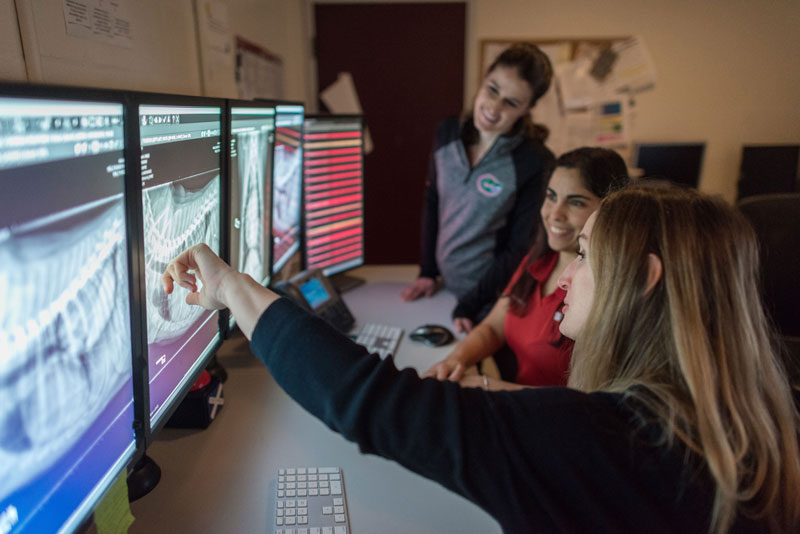In December, Executive Council published a letter from Dr. Jerry Owens expressing concern over recent format changes to the ACVR’s certifying exam. The letter and ACVR member responses can be found on the Discourse portion of this website.
The Exam Committee Chair’s response can be found, both below and on discourse. Feel free to add your own comments to the discussion regarding the exam and other topics by visiting: community.acvr.org
Dear Dr. Owens and other ACVR Membership/Diplomates...
After carefully reading Dr. Owens letter dated October 1, 2019 to then President Pollard and the Executive Council, I would like to respond as one who has served on the examination committee three times and most recently just rotated off as Exam Committee Chair with the implementation of the new system/style for testing candidates for the ACVR certifying examination (case based materials with typed responses).
The ACVR exists primarily for the sole purpose of residency program approval and oversight and the establishment and grading of two examinations for the preliminary and certifying examinations for board certification as a Diplomate within the ACVR. This has not changed.
In the late 90’s the exam committee recognized that the format of oral examination had inherent flaws that were reviewed with Council during a triannual review. One of these concerns was the inherent bias that any examiner brings into an oral examination on the grading and evaluation of a candidate. The other issue was how we were going to get through the examination process with the larger number of candidates in a timely fashion. We maintained 6 sections and did away with any elective sections over time and we tightened up the grading process and shortened the exam to one 45-minute section for each of the six sections with only one reviewer/grader for the candidate. During this time, we also adopted a set of guidelines/rules and basic principles by which we graded each candidate to try and remove some of the inherent bias for grading. By the middle to end of the 1990’s we did not interact anymore with the candidates and our only interaction was in fact to be an introduction, any clarification points (did not hear what the examinee said, but could not ask for other forms of clarification, like “what did you mean by …… OR could you further talk about ……”) and a conclusion wishing the candidate the best and moving on to the next candidate. The point of not being able to interact (“oral dialogue”) with the candidate in the fashion that Dr. Owen’s was referring to in his letter has in fact not been the case for over 22 (eg., 1997) years prior to the movement in 2019 to the new oral examination format. This criticism of the new exam format therefore is not on the table for discussion in my mind. Our move from the oral format to the written format for the certifying examination has been in the discussion and planning stages for over 6 years with Council’s input, recommendations and approval since 2014. This means that this format has been the topic of discussion at multiple ACVR annual meetings particularly during the business meeting (even when I was president in 2013 at the Savannah annual meeting there was some initial discussion of this concept both in Executive Council and at the annual business meeting).
Logic and deductive reasoning are not the foundation of the oral examination from the standpoint that the candidate has to identify the roentgen abnormalities first and foremost correctly without reporting normal structures as being abnormal and abnormalities as being normal. There then is the part of the question for each case where the candidate synthesizes a summary statement regarding the roentgen abnormalities and then tries to tie these together in a “logical” fashion. The synthesis grading portion of the examination has not changed in the new format and one can grade the candidate’s answer without having to ask any questions or leading questions that might help direct a candidate down a certain pathology or process. This might be considered indirect help from the examiner but how does one ensure the “fairness” and “appropriateness” of questions or statements across the board with all candidates. This is virtually impossible to do much less guarantee on such a high stakes examination. By taking this bias away from the examiner it places all of the responsibility (as it should be) on the candidate to make themselves clearly known as to their interpretation, synthesis and conclusions related to the cases they are presented with during the certifying examination.
I greatly appreciate Dr. Owen’s suggestions, and all of these have already been done and implemented over the past 10 years of the oral examination.
With the current (new) format of the certifying examination, the anonymity of the candidate is maintained relative to the examiner. In the case of individual discrepancies between two graders (not ever used in the prior format), a third grader can be elicited without knowledge of prior scoring concerns or again the individual being graded. This provides for a defensible examination that is fair and consistent between the candidates and the years of examination and is in keeping with the standards set in the preliminary examination.
I want to thank Dr. Owens for his concerns and the concerns that have been expressed to him (others that could be named) in his letter. Hopefully, this response has started a continued dialogue that needs to take place between the examination committee, examination director, ACVR executive council and the ACVR Diplomates. We look forward to any other issues or concerns.
After the administration of two of these written certifying examinations in 2019, I believe in the format and that moving forward this will be a great improvement in the examination process. I believe the system will be “perfected” in due time, but we are all continuously working together toward that end.
Respectfully submitted,
Clifford (Kip) Berry, DVM, DACVR
Examination Committee Chair (2019)

Image courtesy of University of Florida, Veterinary Radiology